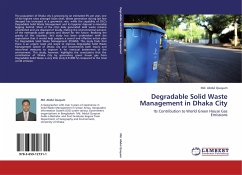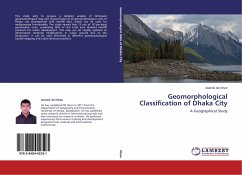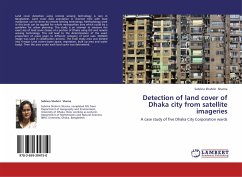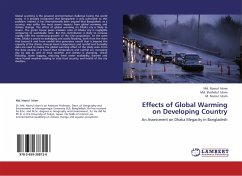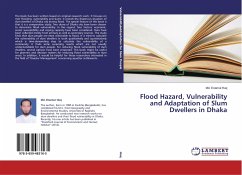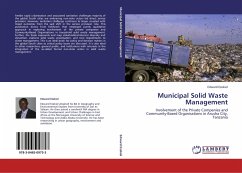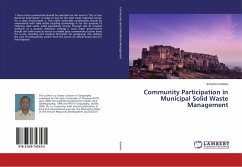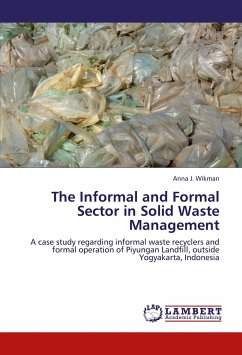The population of Dhaka city is growing by an estimated 6% per year, one of the highest rates amongst Asian cities. Waste generation during last few decayed has increased at a geometric rate, while the capability of DCC's Degradable Solid Waste Management and its hygienic disposal is miserably lagging behind. Most of the city's daily generated solid waste remains uncollected and are disposed of locally, making the environmental scenario of the metropolis quite gloomy and dismal for the future. Realizing the gravity of the situation, this study has been undertaken with the expectation that it would help prepare a sound and effective action plan for Degradable Solid Waste Management (DSWM). This study finds that there is an urgent need and scope to improve Degradable Solid Waste Management system of Dhaka city and recommends both macro and micro-level measures to improve it for eventual betterment of the environment. This study, however, highlights the conclusions that the contribution of Dhaka City by generating green house gas from Degradable Solid Waste is very little (only 0.01498 %) compared to the total world emission.
Bitte wählen Sie Ihr Anliegen aus.
Rechnungen
Retourenschein anfordern
Bestellstatus
Storno

